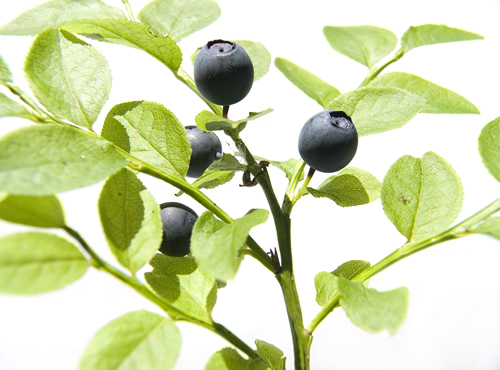Description
Botanical: Vaccinium myrtillus
Other common names: Whortleberry, European Blueberry, Myrtle Blueberry, Blueberry,* Huckleberry,* Black Whortle, Burren Myrtle, Whinberry, Dyeberry, Wild Blueberry, Wineberry, Fraughan (Irish), Black Hearts, Grouseberry
Country of Origin: Germany
Bilberry support reduced eye irritation, nearsightedness and night-blindness, and may also help to extend range and clarity of vision. Pregnant women find the herb to be beneficial, as it fortifies veins (including varicose veins) and capillaries and combats fatigue.
Beneficial Uses:
Because Bilberry helps to fortify capillaries and strengthen veins, it can also help to improve blood circulation by increasing the ability of fluids and nourishment to pass freely and is therefore also valuable to people, particularly the elderly, who suffer from poor circulation to the hands and feet.
Bilberry has been used to regulate bowel action via astringency and antiseptic actions: It is a mild but strong astringent that has been effective in treating dysentery and diarrhea. It is an antiseptic that helps treat urinary tract and bladder infections and is said to curb intestinal putrefaction (which produces flatulence and gas), helping to reduce stomach cramps.
Bilberry has also been used as a mild diuretic and is said to relieve bloating and rid the body of excess water retention and edema (dropsy), the accumulation of fluid in tissues or a body cavity, which can cause swelling.
Herbalists say that Bilberry tea makes a fine mouthwash or gargle and also recommend its use to relieve inflamed gums and tongue; it is held in the mouth for a while and then swallowed. The antiseptic and astringent qualities may also help in cases of periodontitis, sore throat, laryngitis; and astringency is said to be beneficial for hemorrhoids and internal bleeding.
Bilberry is most effective when taken over a period of time as a dietary supplement that helps to
Contraindications:
Currently, there are no warnings or contraindications with the use of Bilberry fruit. However, coumarins in Bilberry may increase blood thinning activity and inhibit platelet activity.


